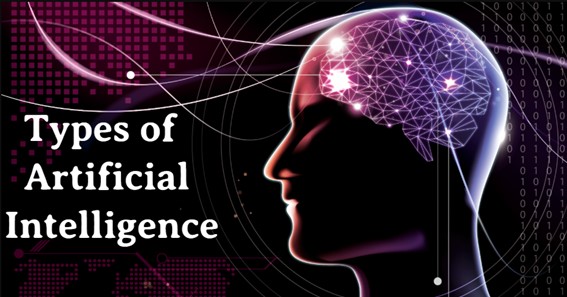Artificial intelligence (AI) has become a buzzword in the world of technology, and for a good reason. AI has the potential to revolutionise the way we live and work, and it is already making significant inroads in areas such as healthcare, finance, and transportation.
However, not all AI is created equal. There are four distinct types of AI with their own strengths and weaknesses. Understanding these types is critical to developing effective AI solutions and using them effectively. In this blog post, we will explore the four types of AI and their applications.
-
Reactive Machines
Reactive machines are the simplest form of AI. They are designed to react to specific situations without any memory or past experience. These machines are programmed to recognise and respond to data patterns. A reactive machine, for example, could be trained to recognise specific images and respond with a predetermined action.
Reactive machines are commonly used in manufacturing, where they can perform repetitive tasks such as assembly line work, painting, and welding. They are also used in robotics and automation to operate machinery and execute tasks in dangerous or inaccessible environments.
-
Limited Memory
Unlike reactive machines, limited memory AI can store and recall data from past experiences to make informed decisions. This type of AI is commonly used in self-driving cars, where the car’s sensors collect data on the environment and the car’s past experiences to make decisions about how to navigate the road.
Limited memory AI is also used in natural language processing, where it can use past conversations to inform its responses to new conversations. For example, a limited memory AI chatbot could remember a user’s past interactions and tailor its responses to better serve the user.
Click here – How to Look After Tarps
-
Theory of Mind
Theory of mind AI is a more advanced form of AI that can understand and interpret the emotions, thoughts, and beliefs of others. This type of AI is programmed to simulate human thought processes and understand the intentions behind people’s actions.
Theory of mind AI is used in social robots, which can interact with humans more naturally and intuitively. For example, a theory of mind AI robot can recognise and respond to a human’s emotional state, such as detecting when someone is upset and offering comfort.
-
Self-Aware
Self-aware AI is the most advanced form and is still largely theoretical. This type of AI would be able to understand its own existence and consciousness as well as reason, learn, and adapt on its own.
Self-aware AI is often the subject of science fiction, and many people believe that if it ever becomes a reality, it will pose a threat to humanity. However, self-aware AI has numerous potential benefits, including the ability to solve complex problems and make decisions.
Click here – Best Essential Oils for Improving Scalp Health _ How to use & Safety
Take Away
Understanding the four types of AI is critical for anyone working in the field or considering a career in AI. Online AI courses offer an excellent opportunity to learn about these different types of AI and their applications in various industries.
The certificate courses are designed to cater to different proficiency levels, from beginner to advanced, making it easier for learners to pick up new skills and knowledge. Additionally, they are often more affordable and flexible than traditional classroom-based learning, making it easier for learners to fit the courses into their busy schedules.
Overall, online AI courses offer a valuable opportunity for professionals and freshers to enhance their skills, learn new technologies, and advance their careers in artificial intelligence.

